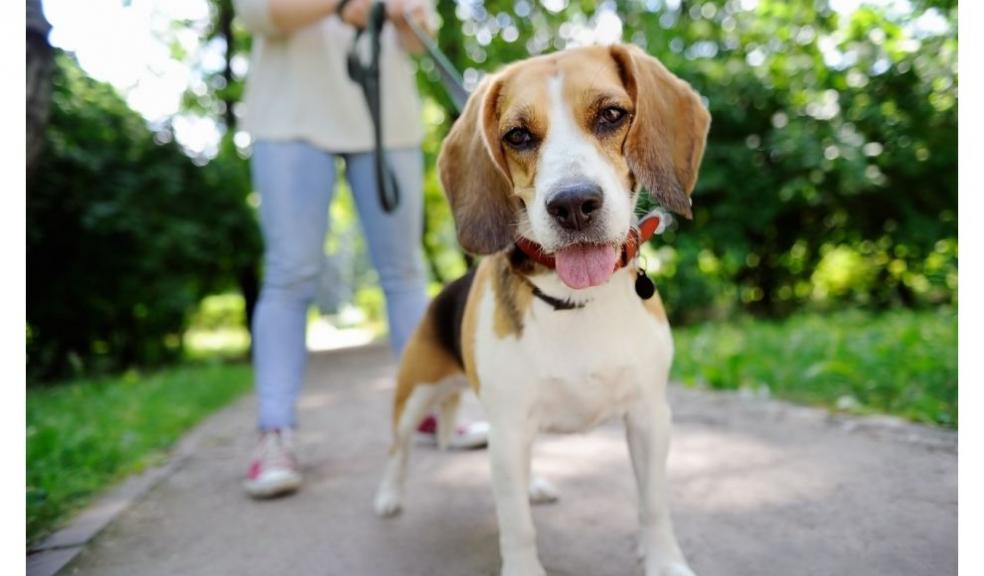
How to protect against dog theft
Dog theft is sadly on the up, with estimates showing that seven dogs were stolen a day in 2020 – a 170 per cent increase from 2019. Due to the sharp rise in demand for puppies during the pandemic, and the resulting surge in prices, criminals are seeing dog theft as an easy way to make a lot of money. Despite this, dog thefts do remain uncommon.
Blue Cross is working hard to put pressure on the government and police forces around the country to do more to protect our beloved dogs from these callous thieves, but there are also important steps that owners should take to help keep their pets as safe as possible while maintaining the routines that keep them happy and healthy.
Ways to protect your dog from theft
Identification
- Make sure your dog is microchipped and that you keep your contact details up-to-date, especially if you move home or change your telephone number. All puppies in the UK must legally be microchipped by eight weeks.
- Your dog should always wear a collar and ID tag with your name and address on it. This is a legal requirement when your dog is in a public place. A mobile number is also a good idea, as well as confirmation they are microchipped. If your dog is neutered, having this on their ID tag may also deter thieves looking to steal dogs to breed from.
- Do not put your dog’s name on their collar, harness or ID tags – it makes it easier for thieves to lure them in if they know their name
- Take clear photographs of your dog from various angles and update them regularly, before and after any grooming trips. Make a note of any distinguishing features.
- Have lots of photographs of yourself with your dog, to help you to prove ownership if needed
Out and about
- Beware of strangers asking you questions about your dog, bending down to stroke them or vehicles slowing down around you
- Vary your times of walks and routes; some dogs are targeted and snatched during walks after being watched previously
- Consider walking in pairs, where possible, but keep your focus on your dog
- Stay aware of your surroundings and avoid distractions such as mobile phones
- Never leave your dog tied up outside a shop, no matter how safe the neighbourhood seems. This makes them a tempting target for opportunist thieves.
- Do not leave your dog alone in a car at any time – not only can they quickly overheat and die, even in dull weather, thieves can break into a vehicle and snatch them in seconds
- Never let them off the lead if you are not sure they will come back to you. If in doubt, use a long lead, also known as a long line, to build up recall, especially if you are in an unfamiliar area where your dog may get lost more easily.
- Make a note of emergency SOS shortcuts on your mobile phone
- Consider carrying an alarm device. These can be scary for your dog so only activate in an emergency or test when they’re not close by.
- GPS pet trackers which attach to your dog’s harness or collar may help
At home
- Keep your dog in view in the garden, don’t just leave him outside unsupervised. Front gardens are particularly vulnerable to dog thieves.
- Make sure your garden is secure to keep your dog in and lock any gates. Fit a bell to the gate so you hear if anyone opens it.
- CCTV may help to deter thieves
When leaving them in other people’s care
Take care when choosing someone to care for your dog if you are going away from home or need a dog walker while you go to work. Use a reputable company or boarding kennels and check references for people who provide dog or house-sitting services.
Social media
- Avoid putting too much information about your dog, such as where you live and work. Keep privacy settings in mind.
- If you’re visiting a new place, wait until you’re home to tag locations
- When posting pictures, be sure to blur out any identification tags
- Remain suspicious of strangers asking lots of questions online
Other things to bear in mind
- Neutering: Many dogs are stolen by thieves hoping to breed from them and sell puppies. Neutering your dog may deter these types of criminals and has a number of other health benefits as well as reducing the likelihood of roaming.
- If you breed puppies for sale, take great care when inviting people in to view; ideally, have someone else present and limit the numbers of people you allow in at a time. Show the puppies in one secure area.
- Decide who owns the dog in your household. Discuss who would own the dog in the event of bereavement or break up and draw up documentation to this effect. This may seem unnecessary, but pets can become the centre of ownership disputes in these circumstances.
If the worst happens and your dog is stolen
- Act quickly! If your dog is suspected to have been stolen, dial 999. Insist that police record it as a theft rather than a lost animal and get a crime reference number.
- Report the loss/theft to the microchip database, this will ensure that if anyone tries to re-register the chip number, you will be informed
- Report the loss to your local council’s dog warden and those in all other neighbouring local authorities
- Visit places where dog walkers go such as local parks and public places and talk to people, asking them to keep an eye open for your dog
- Make posters and display them in areas local to your home and also in relevant places such as vets, local parks etc. The poster should include a clear photograph and details of the circumstances.
- Put out appeals on social media as soon as possible and encourage friends and family to share them far and wide
- Consider calling your local newspaper and media outlets to publicise the theft and warn others to be on the lookout for your dog and similar cases
- Make sure local vets are aware in case someone takes your dog in for treatment
- Report the loss on as many as possible of the missing animal websites – there is no single national missing animals database, so you will have to place the same information on all of them to ensure a widespread appeal
- Contact local animal shelters and rescue charities and send them posters to display
- Losing a pet due to theft or other reasons is a traumatic event. Blue Cross is here to provide support with our Pet Bereavement Support Service which can be contacted on 0800 096 6606 (8.30am – 8.30pm) or by email pbssmail@bluecross.org.uk.
If you found this article instresting you may also like to read Taskforce launched to investigate reported rise in pet thefts







